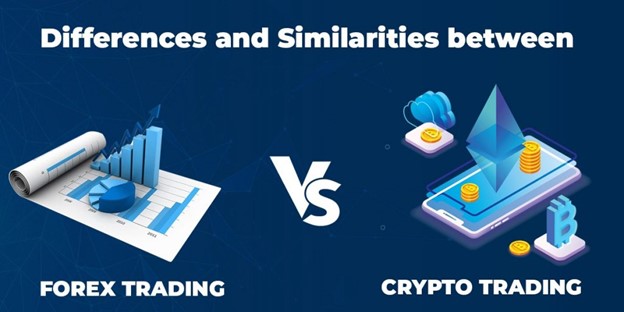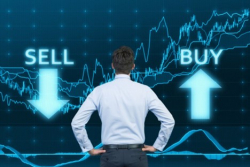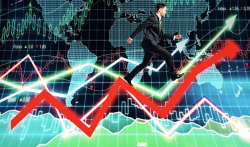
Table of Contents
Stock Trading VS Forex Trading
What is Forex versus stocks?
The very first difference is very clear – what you are trading. Forex, short for Forex exchange, is the biggest global marketplace with a daily average turnover of forex trades of $6.2 trillion. The Forex market is the change of one currency into that of another on the currency market.
The stock market, anyway, is where a stock trader is involved in the selling and buying of ownership in a firm and is a significantly little market in terms of value. Currently the value of stock trading runs at about $200 billion per day. The units of measurements for ownership are known as shared and you can begin trading stocks on places like the New York Stock Exchange.

Difference between stocks and forex trading
In this page, we will take a closer look at the key differences between forex and stock trading. By understanding these differences, you can make the best decision about which kind of trading is right for you.
Trading time
The FX market is a twenty-four hour market, and it has no single central place, so participants are spread across the planet, and there is forever a part of the market that is in business hours.
The stock market has a big limitation on trading time. Firms are listed on specific stock exchanges, so traders can only trade certain penny stocks within the chosen hours of that exchange. This means that stock traders can only trade on one exchange for eight hours a day.
Minimal or no commissions
Most forex brokers charge no commissions; instead they make their profit on the spread – which is the difference between the sell and the buy price. When trading stocks index like S&P 500, generally traders must pay the spread along with a commission to a broker.
Liquidity
High volume generally means high liquidity. With high liquidity also comes stronger spreads with much lower transaction prices. So, forex spreads are much lower than stocks meaning the difference between the ask price and bid is much closer.
The forex market is considered to have top liquidity overall due to such an active 24/5 market. On the other hand, liquidity in the stock market can change greatly between individual stocks.
Regulation
Forex traders have to follow special rules than stock investors because they are not regulated by American agencies. Forex trading is not subject to the same level of regulations as other financial markets like futures and stocks.
The key goal of these regulations is to protect retail investors from prevalent scams found across international borders.
Prices influencers and catalysts
Stocks and forex are two of many financial markets that can be affected by the news. The stories and news affecting these currencies differ; anyway, forex is generally moved based on international problems while stock prices respond to company financial health. Further, political events might trigger wild changes if traders trust they will have any type of important impact near term – which is not forever true but definitely worth watching.
The similarities between Forex trading and stocks trading
The key similarity is that success in both markets depends on taking benefit of continually changing prices.
Most stocks and foreign exchange traders use the same famous technique, technical analysis. Both traders use the same techniques of price action analysis, to plan how to trade.
You can trade both markets in 2 directions – take a long trade or little selling trade.
Both forex traders and stock traders need discipline and a work plan to succeed. Without discipline, your capability to succeed in trading is extremely low.
Which is right for you?
Deciding which market to trade is definitely your personal choice. Here are some factors to keep in mind:
When forex trading works best
The freedom from regulation on the forex and its top degree of possible leveraging makes it simple to control big trades. A starting forex trader has many of the tools accessible to them that a seasoned trader has, whereas a stock trader needs to acquire unique qualifications and save up an important amount of capital to trade like the pros. If you are eager to begin trading big amounts of capital, forex trading is for you.
FAQs
Are Forex or stocks more profitable?
Big stocks markets generally change in value by about twice as big Forex currency pairs, indicating that profits are generally easier to get in the stock. Anyway, relative to trading style and risk, there may be a little difference between these 2 asset classes.
Is Forex trading easier than stocks?
Forex has a lower obstacle to entry than stock trading, as trading Forex generally incurs proportionally lower fees and permits the use of higher leverage. Forex markets are also generally considerably less unstable than stock markets. For these reasons, many traders find it easier to trade Forex than stocks, although stocks have a long bias which can help a trader’s edge.
Are there any differences between commodities and forex trading?
Commodities and forex differ in terms of leverage, regulation, and exchange limits. Forex markets are less regulated than commodities markets whilst commodities markets are very regulated. In terms of leverage, it exists in both the commodities and forex markets, but in the forex market it is more famous due to greater liquidity and lower volatility.
Also, like stocks, commodities trade on exchanges. Commodity exchanges set floors and roofs for the price changes of commodities and when these limits are hit trading may be halted for a certain time depending on the item traded. The stock and forex market do not have restrictions that can stop trading from happening.
End words
Forex versus stocks is a decision lots of new traders have faced at the starting of their trading careers. There are pros and cons to both markets and these factors need to be keep in mind when deciding which market to trade in.
Forex trading generally suits short-term forex traders who can pounce on market changes. Stock trading generally suits the long-term trader who will hold positions over a long time period and aims to view big profits at the end of the road.
Ultimately the decision must consider your accessible capital, financial aims, and your individual trading style.







